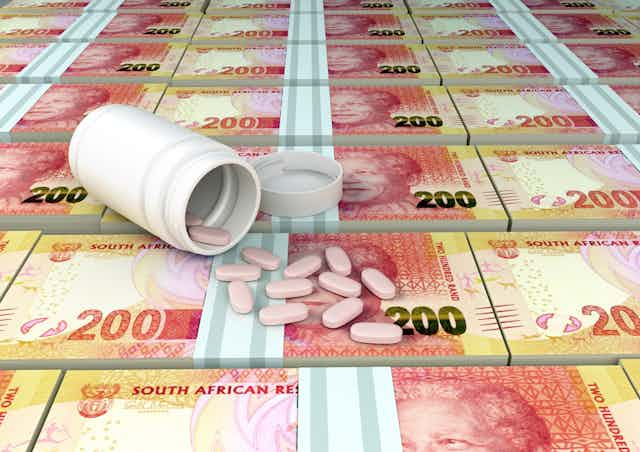A great deal was at stake for South Africa when its Finance Minister Pravin Gordhan delivered his much-anticipated 2016 Budget speech. In terms of health, a tax on sugar-loaded beverages was announced as the government tries to curb diabetes and obesity. South Africa is also poised to strengthen TB programmes, expand antiretroviral treatment and introduce several substance abuse treatment centres, according to Gordhan. Health and medicine editor Candice Bailey spoke to Carmen Sue Christian to discuss the health budget for this year.
The finance minister made only a few references to health. What does this tell us about health as a priority for the country?
Health was clearly positioned in the background this year and did not enjoy the prominence it received in previous budgets. His focus is on another urgent priority: increased expenditure on tertiary education.
But there are still major investments that will be made in capital health projects. He allocated R28 million to improve health facilities over the next three years. Expenditure like this is better because it should result in a return on investment.
The minister’s budget was themed around prudence. There were several references to tightening belts, not spending more than we have and not borrowing beyond what we can repay. Although the speech may have come off as austere to some, it provides an unique opportunity for the country to focus on increasing efficiency within the public system.
The country’s National Health Insurance initiative is arguably the biggest item on the government’s health agenda. Did the finance minister say anything that takes it forward?
The government has been slow to release details around the National Health Insurance since it was first mooted in 2011. The white paper released last year did not provide much detail either. In 2013 and 2014, the finance ministers promised to release discussion papers on financing options but these have not been forthcoming. And despite his promises I doubt financing details will be released any time this year. As the finance minister admitted health financing is complex and this will be exacerbated by the current gloomy economic conditions both globally and at home.
In line with previous budgets, the focus remains on the refurbishment of over 800 health care facilities in the 11 districts that made up the NHI pilot sites and to build 200 more by 2019. While it’s important that health infrastructure is in place, there needs to be a greater emphasis on improving the quality of health services. State of the art facilities and increased physical access will not prevent dissatisfaction in communities where health services are missing or badly managed.
If the country aims to implement an NHI in the future it is critical that the overall quality of health care, both real and perceived, are improved to levels that exceed minimum standards of quality care. The Office of Health Standards Compliance is getting 13 more inspectors. This should play a critical role.
He also mentioned a tax on sugar-sweetened beverages. How helpful will this be?
The theme of tightening belts takes a literal turn here. There is a global trend to use sugar taxes,known as a consumptory tax, to decrease the amount of sugar people consume. Governments use these taxes to try to change behaviour. So, theoretically, taxing sugar-loaded beverages is a good move if higher prices lead to a decrease in the quantity demanded.
Excess sugar consumption may lead to lifestyle diseases such as obesity and type 2 diabetes. In South Africa these have exploded. Public health sector costs to treat obesity and type 2 diabetes are spiralling.
There is evidence that patients with diabetes are three times more likely to develop TB. In a country with a high TB burden, such as South Africa where TB is the number one killer, there is an added incentive to do more to control the increase in diabetes.
Only time will tell how effective these taxes will be in reducing consumption of such drinks. At the very least, it may generate some additional revenue.
What about HIV and AIDS?
There is clear political will to make sure these programmes are strengthened, and rightly so. HIV, AIDS and TB are a critical cluster in South Africa’s quadruple burden of disease. They are important drivers of the mortality and morbidity rates.
The health budget continues its focus on expanding the HIV, AIDS and TB treatment and prevention programmes. South Africa has one of the highest rates of HIV in the world. And although there are over 3 million people on antiretrovirals this programme still has room to expand. Over the next three years HIV, AIDS and TB prevention and treatment will take over 85% of the budget along with revitalising public health care facilities and the provision of specialised tertiary hospital services.
The minister has allocated R740 million to expand the TB programme. Early detection and treatment of TB is important to curb this pandemic, which easily spreads. It is also important because people living with HIV are more likely to contract TB. Over 70% of people in South Africa who have HIV also have TB.

